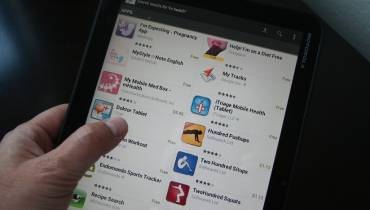Lead Generation Outsourcing: Key Considerations for Businesses
![Featured Image - [node:title]](/sites/default/files/styles/large/public/considerations-when-outsourcing-business-lead_generation.jpg?itok=Dmqe9rta)
In a world where technology is evolving and advancing quickly, the methods and tools for reaching and nurturing potential customers (lead generation) are also evolving and improving rapidly. It's now easier than ever before to reach customers thanks to access to modern technology.
However, with greater access to advanced technology for everyone in business, the competition to convert the same pool of leads or potential customers is also very tough these days. Companies today find that they need to focus and hone their lead generating strategies much more than ever to beat the stiff completion for new customers in the market.
Some companies opt to invest in building dedicated in-house teams such as multi-lingual content writers that are tasked with familiarizing themselves with the product and bringing in leads for the business. Others opt to outsource lead generation to outside teams that have the experience and infrastructure to make the process agile and cost-effective to generate leads for the business.
As far as outsourcing lead generation versus hiring a dedicated in-house team to handle your business' lead generation goes, there is no absolute right answer for which one of the two options is best. The choice on which strategy to choose for lead generation will largely depend on your business' specific circumstances and needs.
It is crucial, however, to keep a few key things in mind before deciding to outsourcing your business' lead generation.
Outsourcing Lead Generation Considerations
When it comes to identifying and cultivating potential customers for your business’ products or services, you can either do it with an in-house team or outsource lead generation.
Here are four key things to keep in mind and consider before deciding to outsource your lead generation to qualified teams:
I. Intent and Goal
Outsourcing may not always work for B2C companies for the simple reason that today the largest volume of leads will largely depend on inbound marketing, which prioritizes content creation and information sharing as a way to reach customers, rather than relying solely on ads. Although with the right kind of ad strategies, companies can still bring in customers.
Outsourcing is particularly effective for B2B or B2B2C clients. Whether you want to outsource or not also depends on the kind of relationship you plan to build with your customers. Some products are so specific, or the customers need details and analytics that only home-grown sales development reps (SDR) - a type of inside sales rep that solely focuses on outbound prospecting - can handle. Those SDRs develop expertise that outsourced teams and agencies can't match.
On the other hand, some companies need to reach voluminous leads because the conversion rate is typically low. In this case, leads may only need a little information before deciding to seek more details, from where the SDRs can take it forward. The amount of information needed before a lead gets converted is lesser than with the previous case where products are so specific and customers need more detailed info that only in-house teams can provide.
Compare, for example, SAAS projects with cybersecurity tools. Even though both are specific with a high degree of customization, the amount of upfront information needed for conversion differs.
II. Sales Cycles
A sales cycle is the entire duration from getting leads to closing the sale. There are two considerations here about the sales cycle when choosing to outsource lead generation:
- How long is your sales cycle?
- How personalized and large do you want your prospects to be?
When you have longer sales cycles, it makes sense to generate more leads to keep the wheel turning. Given the time gap, you need to focus on building relations while other sales close.
With longer sales cycles, the possibility of having endless potential leads is also slimmer. If the nature and quality of those leads is more important than reaching a wide pool of leads, then outsourcing makes sense. Outsourcing agents usually have access to targeted contacts and other data. They can narrow your requirements and reach the right personas for higher quality leads.
On the other hand, if your sales cycle is short, you can benefit more by casting your net wide to reach a larger pool of leads. Not only will a short sales cycle afford you room for targeting wider potential leads, but a short sales cycle also allows you to strategize with an outsourced team in such a way that more people get to know about your product than before.
Strategies like cold calling by telephone and cold-emailing can help generate leads, but you'll probably get better results by investing in inbound marketing funnels by creating useful content and experiences that resonate with audiences to generate leads. Once again, this depends on your sales cycle, the product or service, and your target customers' personas.
III. Value or Price of the Product
The price or total value of the product/service you are selling is another important consideration when deciding whether to outsource lead generation. If the selling price of your product or service is low, then the conversion rate could be higher. In this case, it may be best to work with an in-house lead generation team because the pool of leads is great.
However, if the product value or price is high, it may be best to outsource lead generation because the pool of qualified customers may be lower. The price or value amount over which to opt for outsourcing isn't universal, but Lead Fuze, an outsourcing company, pegs it at $1000.
The higher your product value, the more care you should exercise to expend your resources all to reach qualified leads. Here, a large, targeted database of contacts is valuable for matching the persona you're looking to engage.
Similarly, if you have a long sales cycle and a high product value, outsourcing is the better option.
IV. Volatility of the Product
Some products are so volatile that it takes the company a lot of dedicated effort to maintain its unique selling point (USP) in the market. This is particularly true in IT (Information Technology) and ITES (information technology enabled services) sectors.
In IT and ITES sectors, companies often develop products and then license them for use. These companies then have to work tirelessly releasing patches and building feature updates continuously to maintain the quality and USP of the product. Even then, the unique selling point can be impacted easily by a slight lag in product development or update.
When your product is so volatile, you should focus most of your resources to maintaining that USP and market edge. In this case, an outsourced lead generation team can make a lot of sense than diverting your money and other resources to also develop in-house SDRs for lead generation. Your in-house team should focus on maintaining the quality of your product.
On the other hand, suppose you have a fairy stable or static product/service that can afford to remain the same in the medium-term to long-term while changing only minor things here and there in the service over the course of time. In this case, you can afford to have in-house professionals who handle lead generation because your resources are not as stretched as with volatile products to maintain your product quality and market edge.
The crux of the matter is this: Consider carefully if you can handle lead generation in house together with all of the other numerous activities you'll have to do for your volatile product. Oftentimes, it is be better to outsource lead generation so you can focus on maintaining the quality of your product and your market edge, particularly if the product is highly volatile.
In Conclusion
Of course, there are many other considerations that come into play when outsourcing lead generation, like budgetary limits, implicit costs, overheads, and cost of updating your infrastructure. But all these other constraints fit neatly within the four umbrella factors listed above. So, consider those four things we've discussed carefully.
By understanding your product and your customer or clients' personas, you will be able to choose the best option for your business between in-house lead generation and outsourcing lead generation to qualified teams.






















